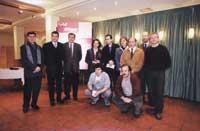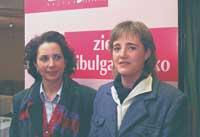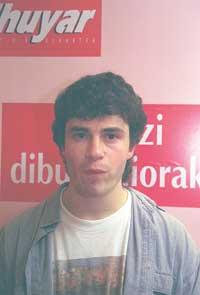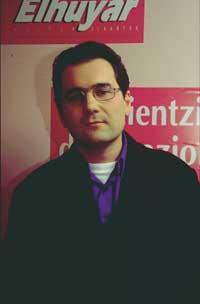Novels of scientific dibulgators in Basque
Caf-Elhuyar 1998
JURY
|
Mikel Zurbano
This year you have not awarded anyone in the book section, but the jury has presented a proposal to turn the prize into a scholarship. Why?
The main reason is to encourage novel writers, (...) because it is quite difficult to write the book without knowing whether it will be published or not. Another thing is that at first you are willing to review the information and the bibliography, which will then become a book, as well as that with it you can get money and survive in some way or that you can continue in that time. What is rewarded is, in some way, what has just begun in the production of books and what has been done so far is, in some way, to present it as a prize of an already guaranteed person. In other awards it has been proven that the process has been the same and in our case, naturally, has resorted to it.
Related information
You have been a member of the jury during the five years of the contest. Has an evolution been observed in the work of the participants? And what is the future you see after five years of the Scientific Outreach Award?

I think there has been no significant evolution. What is clear is that there are always people who are in that world of awards, either by the level or the way of dealing with the subject, or by the level of Basque… and you take them from the beginning. From afar they are also bad. This can be a quarter. And then, as happened this year, another quarter is always a prize. (...) There are always more good jobs than bad ones. Therefore, there is a level of work, both level and quarry. And the winners were unknown to me; in that sense they are novel writers. They won between two, but one was my student and he learned everything in Spanish and the other too. Later they wrote it in Basque. (...) Therefore, this is fine to look for new writers. (...) I am sure that this award will encourage these people a lot.
Jabier Agirre
The jury has decided to match the prizes of 100,000, 50,000 and 25,000 pesetas (3.942´04, 1.971´02 and 985´51 pounds) to 75,000, 60,000 and 40,000 (2.956´53, 2.365´22 and 1.576´82). Hasn't a work appeared that is really good and deserves the first prize, or the level of all the works has been very good and similar?
I think there are two reasons. On the one hand, it was not really what stood out above the others to receive the first prize and, on the other, for juries the works are very diverse and it was difficult to make a classification. It is very difficult to compare a medical work with another related to the economy, and also, as has already been said, being not so different in terms of level, it has seemed excessive the distribution of 100,000, 50,000 and 25,000 (3.942´04, 1.971´02 and 985´51). In short, we have shared the same amount.
FIRST PRIZE 75,000 sts.

Adelaida Umaran Sánchez and Arantxa Sarasua Etxeberria So
far, especially in America, the problems arising from the diseases caused by the white man to the locals are known, but is that relationship back and forth?
Yes it's back and forth, everything comes back. On the one hand we catch diseases, but people there also come to work or stay here. I would say that there is communication, that this world is unique and that, as travel is becoming easier, they are becoming smaller and, therefore, we have to take into account everything that is in the world, and not only take care of our health without taking into account what surrounds us. Everything must be adjusted.
SECOND PRIZE 60,000 sts.

Technical service
What causes lameness, congenital diseases or the oncoming diseases of the giant called science?
Science is a human field and shortcomings are also human. We want to think that science is something unattainable; there is poetry, etc., but science cannot be touched, and that is not true; it is like any other field, even if it has been painted a little better. I wanted to highlight the contradictions of the article.
THIRD PRIZE 40,000 sts.

Related information
Is nature already dominated by science or science at the service of nature?
None? I believe that the two still depend more on the economy. What still commands in the management of nature and the environment is money, although recently environmental and
scientific criteria are being introduced in the management of the environment. But that's very new and there's a lot of work to be done. However, nature has its laws and science extracts them from nature, so I would say that nature is what teaches us to do science.





